

Each year, about 2.1 million kinds of commodities are delivered from Yiwu, a famous marketplace for small commodities in China, to 200 countries and regions in the world.
The drinking straw is one of them. Drinking straws, which only bring about 0.0008 yuan of profit a piece, generate an annual production value of more than 200 million yuan.
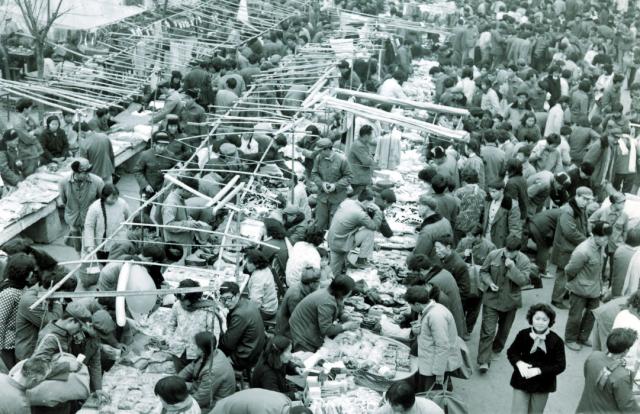
A photo taken in 1982 shows the first-generation marketplace for small commodities in Yiwu, in east China’s Zhejiang province Courtesy of the publicity department of Yiwu municipal government
Lou Zhongping is one of the many merchants in Yiwu that has built wealth by developing small commodities into big industries. Entering the business world at 14, Lou had sold toothbrushes and been a street vendor.
In 1994, Lou launched his own straw brand. The profit of each straw is slim and business was considered small, decentralized and weak at the beginning. However, through constant innovation, Lou had released products in different shapes and of various functions. For instance, one heart-shaped straw owns four invention patents.
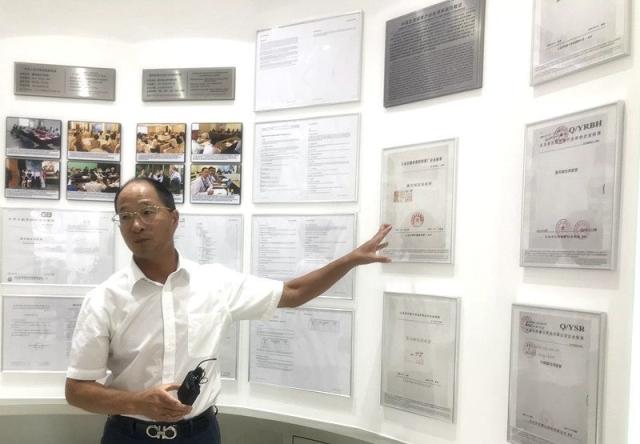
Lou Zhongping, founder of Shuangtong straw, receives an interview with People’s Daily Online. Photo by Chen Qi
Besides straws, China-made Russian dolls have entered foreign markets. Thirty years ago, people of a township called Yimianpo in northeast China’s Heilongjiang province started to make Russian dolls with tree branches because the cost was very low.
At present, the annual output value of Russian dolls has reached 200 million yuan. About 90 percent of the dolls were sold in the country while the rest were sold overseas.
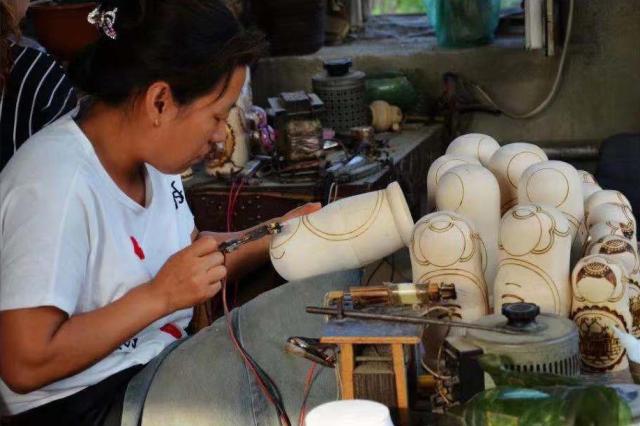
A worker of Yimianpo township in northeast China’s Heilongjiang province manufactures Russian dolls. Photo by Ren Shuqin
Yimianpo is home to 20,000 households, while 1,000 of them are involved in Russian doll manufacturing. The town has established a production line as the making of Russian dolls is complicated and much collaboration is needed.
A woman who draws Russian dolls could earn about 3,000 yuan per month while a turner could earn up to 10,000 yuan. Acquiring the craftsmanship, villagers could make a living at home.
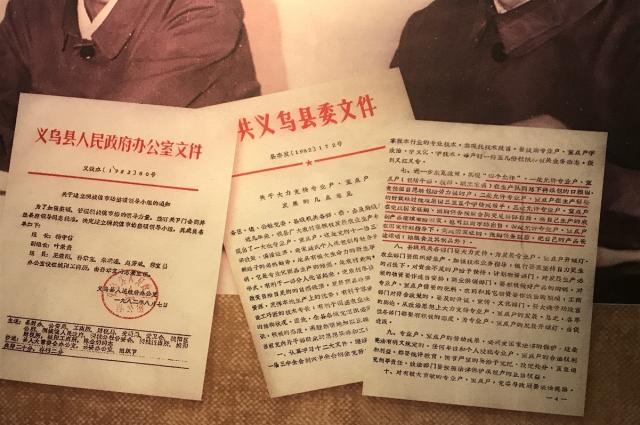
The documents pertaining to the Yiwu small commodity market made public in 1982. Photo by Chen Qi
In Huizhou of south China’s Guangdong province, there are more than 200 guitar manufacturers on one street. The output of guitar accounts for 25 percent of the world, and that of ukulele 80 percent of the world.
Yiwu is home to 13 national-level industry bases, one national economic and technological development zones, a provincial-level industry cluster and a provincial-level industry park.
More than 26,700 industrial enterprises have prospered through a market-oriented strategy. Now, Yiwu owns 16 highly competitive industries such as hosiery industry and accessories.
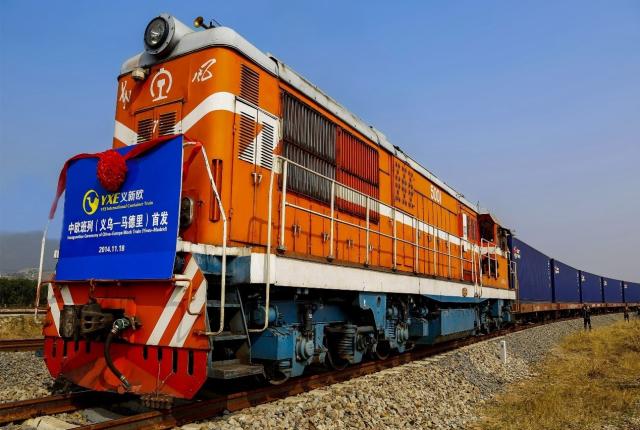
The first Yiwu-Europe freight train departs from Yiwu for Madrid on November 18, 2014. Photo by Wang Jianming
Under the support of the government, Yiwu is delivering an increasing number of China-made commodities to the world. With the opening of the freight train route linking Yiwu and Europe, Chinese commodities are transported to Europe on a regular basis
So far, cargo trains have made nearly 900 trips along the route, carrying 2,000 kinds of goods from eight Chinese provinces and cities. Through local distribution channels, the goods are delivered to 37 countries and regions in Eurasia.
In 2018, Yiwu’s e-commerce transaction volume hit 236.8 billion yuan and value of cross-border e-commerce retail exports accounted for half of Zhejiang province as a whole.
In October 2019, a new train service was launched as part of the cooperation between Yiwu city and Electronic World Trade Platform (eWTP) proposed by Jack Ma, founder of Alibaba, becoming a new link between Europe and China.
 Fire brigade in Shanghai holds group wedding
Fire brigade in Shanghai holds group wedding Tourists enjoy ice sculptures in Datan Town, north China
Tourists enjoy ice sculptures in Datan Town, north China Sunset scenery of Dayan Pagoda in Xi'an
Sunset scenery of Dayan Pagoda in Xi'an Tourists have fun at scenic spot in Nanlong Town, NW China
Tourists have fun at scenic spot in Nanlong Town, NW China Harbin attracts tourists by making best use of ice in winter
Harbin attracts tourists by making best use of ice in winter In pics: FIS Alpine Ski Women's World Cup Slalom
In pics: FIS Alpine Ski Women's World Cup Slalom Black-necked cranes rest at reservoir in Lhunzhub County, Lhasa
Black-necked cranes rest at reservoir in Lhunzhub County, Lhasa China's FAST telescope will be available to foreign scientists in April
China's FAST telescope will be available to foreign scientists in April "She power" plays indispensable role in poverty alleviation
"She power" plays indispensable role in poverty alleviation Top 10 world news events of People's Daily in 2020
Top 10 world news events of People's Daily in 2020 Top 10 China news events of People's Daily in 2020
Top 10 China news events of People's Daily in 2020 Top 10 media buzzwords of 2020
Top 10 media buzzwords of 2020 Year-ender:10 major tourism stories of 2020
Year-ender:10 major tourism stories of 2020 No interference in Venezuelan issues
No interference in Venezuelan issues
 Biz prepares for trade spat
Biz prepares for trade spat
 Broadcasting Continent
Broadcasting Continent Australia wins Chinese CEOs as US loses
Australia wins Chinese CEOs as US loses